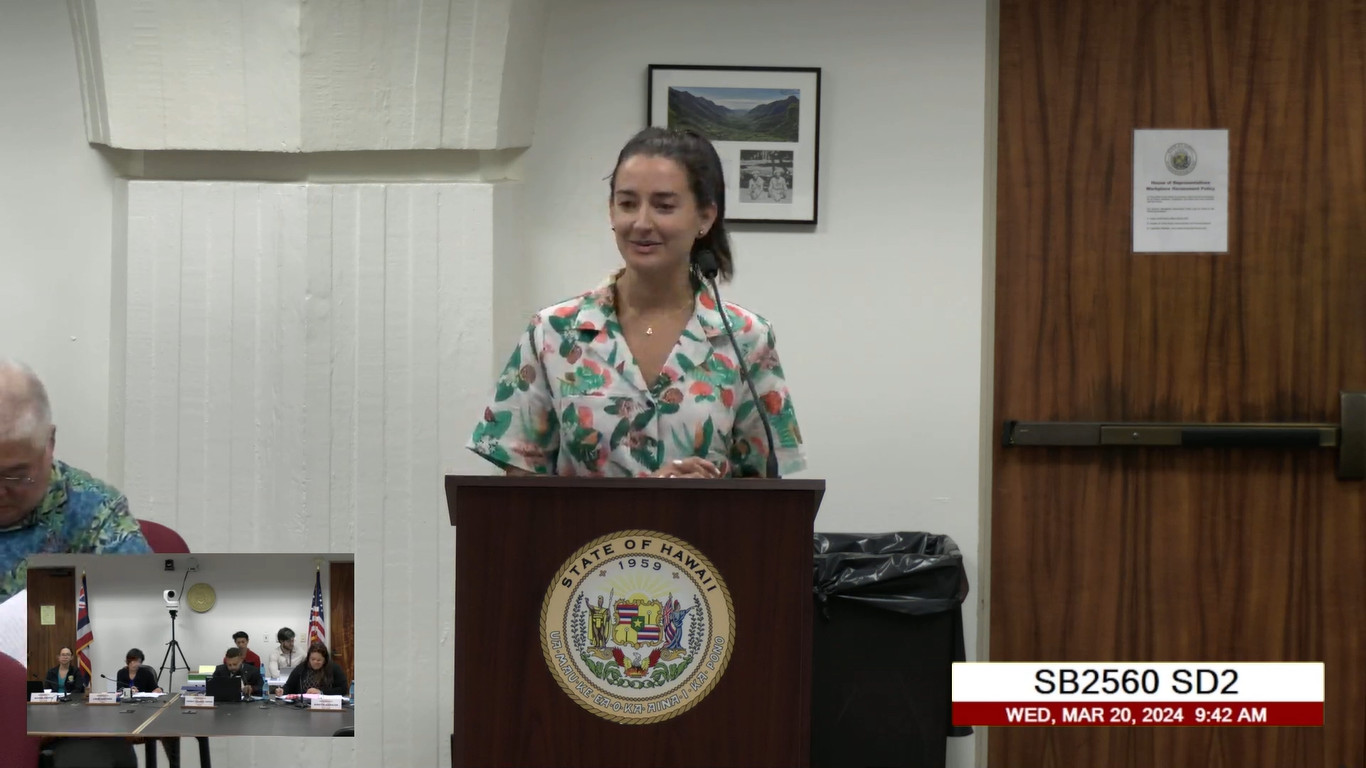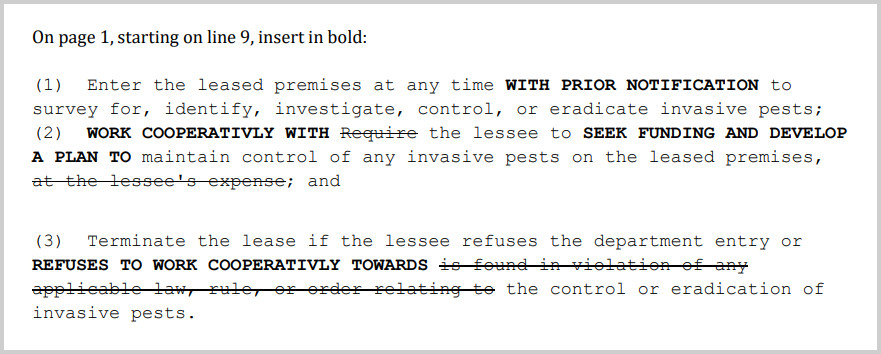AGR/WAL Joint Public Hearing – Mar 20, 2024
(BIVN) – A bill that would allow Hawaiʻi Department of Agriculture officials to enter leased property to address invasive species is moving through the State Legislature.
SB 2560 SD2 was heard by the House Committee on Agriculture & Food Systems, and the Committee on Water & Land on Wednesday morning. The bill would authorize the Department of Agriculture to enter the premises of any of its leases “to survey for, identify, investigate, control, or eradicate invasive pests”. In addition, the bill requires the lessee to maintain control of any invasive pests on the leased premises, at the lessee’s expense. The bill also allowes the department to terminate the lease if the lessee refuses the ag officials entry, or is found in violation of any laws or rule on invasive pests.
The Department of Agriculture in its comments stated that the measure “may be unnecessary as we believe these actions are already addressed through the General Lease provisions.”
However, the ag department also suggested that the term “Invasive Pest” be changed throughout the legislation to the term “Pest”, pursuant to the existing definition in HRS 150A-2. According to the Ag Department:
The definition of “invasive pest” as used in this bill includes any taxa “that is designated as a restricted or prohibited species pursuant to chapter 150A” would subsequently prevent lessees from maintaining plants restricted by rule, such as orchids, sugarcane, or pineapple, as they would require control or eradication of these plants on the premises; or require control or eradication of species that are widespread, but still prohibited from entry such as geckos, myna birds, or bulbuls.”
Stephanie Easley with the Coordinating Group on Alien Pest Species (CGAPS) testified in support of the bill.
Nicole Galase, the Managing Director of the Hawaii Cattlemen’s Council, also testified on the bill, and brought the House committee’s attention to a set of recommended amendments (below) that she said would foster a more collaborative relationship between the HDOA and its leaseholders.
Hunter Heaivilin, speaking on behalf of the Hawaiʻi Farmers Union, stated the union is in support of the intent of the bill, but has concerns “around the undue burden that’s placed solely on the leaseholder, but yet places nothing on the part of the department, who is offering up that lease.”
“Seeing as this could potentially be a mechanism to revoke leases, should there be invasive species present on an agricultural parcel,” Heaivilin said, “we would seek to have maybe some softer language, or at least a little more clarification.”
Also presenting testimony at the Capitol was a first grade teacher from the Big Island. “Teaching my students about our native species, as well as the other culturally-significant agricultural plants, is a major part of my social studies and science curriculum, as well as one of the ways that I align with the Nā Hopena Aʻo Framework,” said Jess Sobocinski of Honokaʻa Elementary. “My students love learning about these flora and fauna that make Hawaiʻi special, and it breaks my heart to have to tell them that many of these species are endangered due to competition or predation from invasive species. I support SB 2560 as a step to help mitigate and prevent the introduction and spread of these pests, who are devastating the plants and animals that we rely on for food, cultural practices, and a strengthened sense of Hawaiʻi.”
The joint committee advanced the bill with amendments. The new House Draft replaces the use of the term “invasive pests” with “pests”, adopted the recommendations made by the Cattlemen’ Council, and made some technical changes.



by Big Island Video News5:13 pm
on at
STORY SUMMARY
HONOLULU - Farmers expressed concerns that the measure could be used to revoke ag leases.